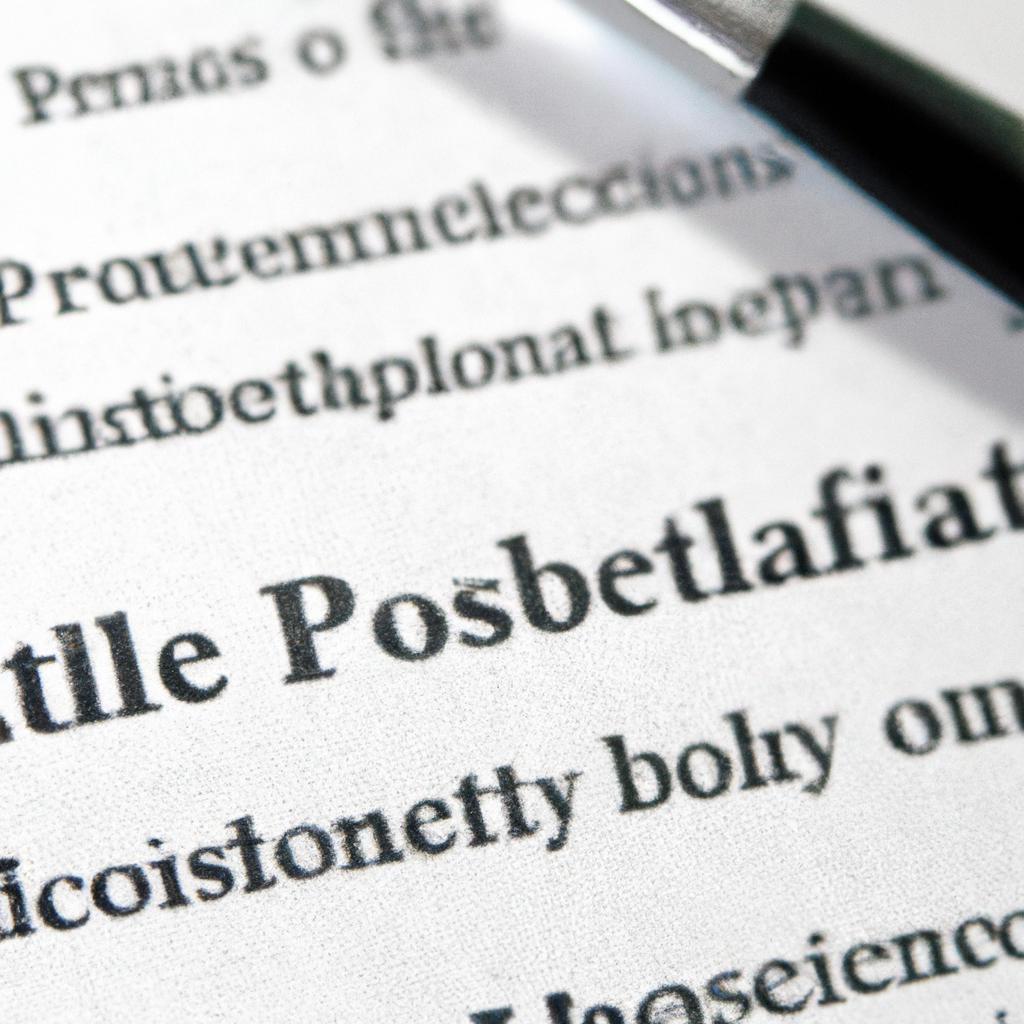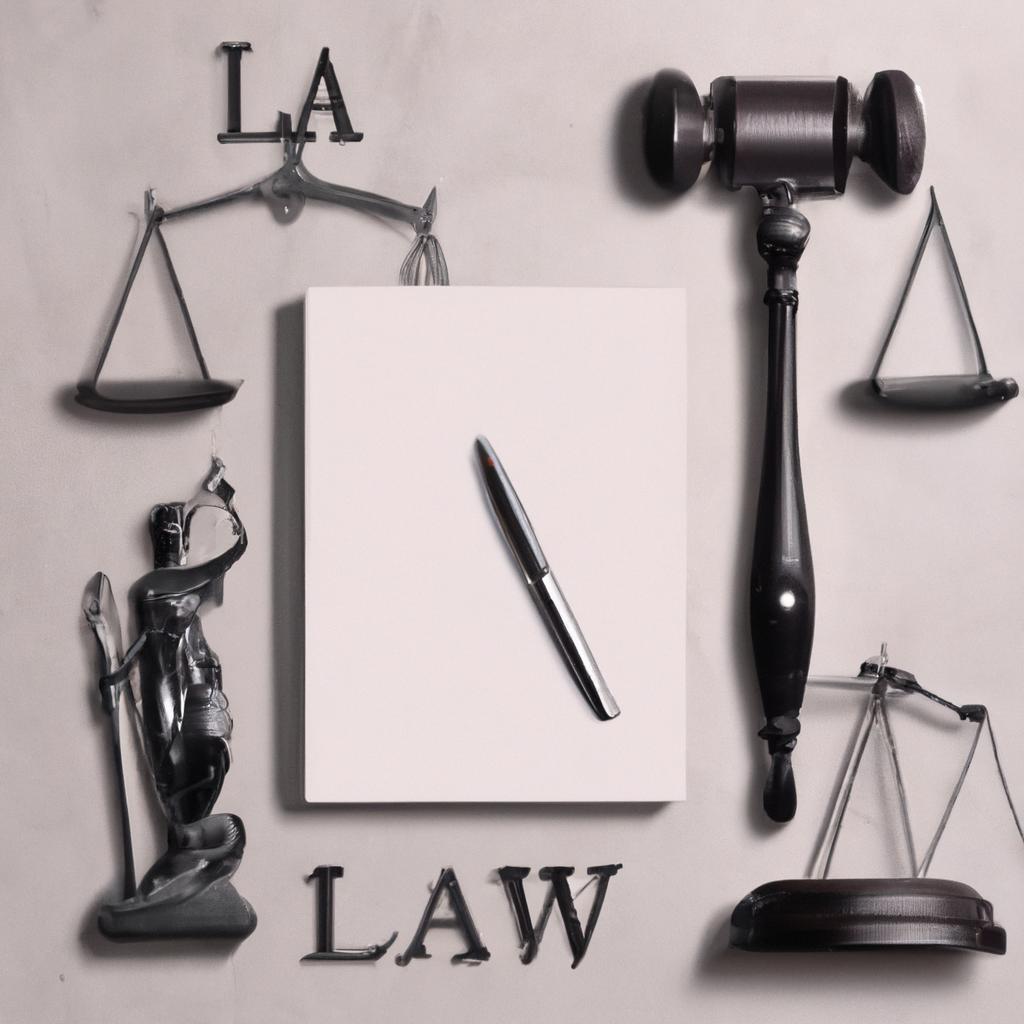Probate, often considered the final frontier of estate administration, is a process that can be complex and expensive. One of the most common questions that arises during this time is: who pays for probate? In this article, we will explore the various parties involved in the probate process and shed light on the responsibilities and obligations that come with it. As experienced lawyers at Morgan Legal Group in New York City, we have navigated countless probate cases and are here to provide expert insight on this important topic.
Determining Responsibility for Probate Costs
When it comes to , it’s important to understand that the fees associated with the probate process can vary depending on the circumstances. In general, the costs of probate are typically paid from the deceased person’s estate before any assets are distributed to beneficiaries. However, there are certain scenarios where different parties may be responsible for covering probate expenses. Here are some factors to consider:
- Executor/Administrator: The person appointed as the executor or administrator of the estate is usually responsible for managing the probate process, including paying probate costs out of the estate assets.
- Beneficiaries: In some cases, beneficiaries may be required to cover certain probate expenses, such as filing fees or court costs, especially if the estate does not have enough assets to cover these expenses.
| Scenario | Responsible Party |
|---|---|
| Executor named in the will | Executor |
| No will, court-appointed administrator | Administrator |

Factors Affecting the Payment of Probate Fees
can vary depending on the specific circumstances of the estate. Understanding who is responsible for covering these costs is essential in the probate process. Here are some important factors to consider:
- Estate Size: The size of the estate can directly impact the amount of probate fees incurred. Larger estates typically have higher fees due to the complexity and value of the assets involved.
- State Laws: Each state has its own regulations regarding probate fees, including who is responsible for paying them. It is crucial to consult with an experienced probate attorney to navigate these laws effectively.
In some cases, the executor of the estate may be held personally liable for probate fees if they fail to properly manage and distribute assets. It is crucial to consult with a legal professional to ensure compliance with all regulations and protect against potential liabilities. Additionally, seeking the guidance of a knowledgeable attorney can help streamline the probate process and minimize unnecessary costs.
Strategies for Minimizing Probate Expenses
When it comes to probate expenses, it’s important to understand who is responsible for covering the costs. In most cases, the estate itself will be responsible for paying probate expenses. These expenses can include court fees, attorney fees, executor fees, and any other costs associated with the probate process.
However, there are strategies that can help minimize probate expenses and ensure that the estate retains as much value as possible. One such strategy is to create a living trust, which allows assets to be transferred outside of probate. Additionally, having a comprehensive estate plan in place can help to streamline the probate process and reduce associated costs. By working with an experienced estate planning attorney, you can develop a plan that minimizes probate expenses and ensures that your assets are distributed according to your wishes.

Seeking Professional Guidance on Funding Probate Processes
When it comes to funding probate processes, one of the common questions that arise is who ultimately foots the bill. In most cases, the expenses related to probate proceedings are paid from the estate itself. This includes court fees, attorney fees, accounting fees, appraisal fees, and any other costs associated with the probate process. However, there are instances where individuals may be required to cover certain expenses out of pocket.
It’s important to seek professional guidance from an experienced probate attorney to ensure that all expenses are properly accounted for and paid in accordance with state laws. An attorney can help navigate the complexities of probate proceedings and ensure that the estate is administered efficiently and effectively. With the guidance of a knowledgeable probate attorney, individuals can rest assured that the funding of probate processes is handled in a thorough and legally compliant manner.
Q&A
Q: Who pays for probate?
A: Probate fees are typically paid from the estate of the deceased individual.
Q: What are the costs associated with probate?
A: Costs of probate may include court fees, attorney fees, appraiser fees, executor fees, and other administrative costs.
Q: Can the person who is inheriting the estate be responsible for probate costs?
A: In some cases, the beneficiaries of the estate may be responsible for certain probate costs, but the bulk of these expenses are usually covered by the estate itself.
Q: Are there ways to minimize probate costs?
A: Yes, there are strategies to minimize probate costs such as creating a living trust, gifting assets before death, and naming beneficiaries on accounts and property.
Q: How long does probate typically last and how does that impact costs?
A: Probate can last several months to a few years, depending on the complexity of the estate. The longer the probate process, the higher the costs can become due to ongoing legal and administrative fees.
Q: Are there any circumstances in which the state may pay for probate costs?
A: In certain situations where the deceased individual was indigent, the state may cover probate costs through a program for estate administration.
In Summary
In conclusion, understanding who pays for probate can be a complex and sometimes confusing issue. Ultimately, the costs of probate can vary depending on the individual circumstances of the estate. Whether it’s the executor, beneficiaries, or even the estate itself that foots the bill, it’s important to be aware of who is responsible for covering the costs associated with probate. By staying informed and seeking guidance from legal professionals, you can navigate the probate process with confidence and clarity. Remember, knowing who bears the financial burden of probate can help you make informed decisions and better plan for the future.
 Who Pays for Probate: Understanding the Costs and Responsibilities
Who Pays for Probate: Understanding the Costs and Responsibilities
Probate is a legal process that takes place after someone passes away, in which their assets are distributed to their beneficiaries and debts are paid off. This process can often be lengthy, complicated, and emotionally taxing for the loved ones left behind. Additionally, there is often confusion and questions surrounding the financial aspect of probate, such as who is responsible for the costs and fees associated with it.
In this article, we will explore the question of who pays for probate and provide valuable information to help you better understand the costs and responsibilities involved. We will also discuss some practical tips and case studies to give you a better idea of what to expect and how to navigate this process.
Who is Responsible for the Costs of Probate?
The short answer to this question is that the estate of the deceased person is responsible for the costs of probate. However, this can be a bit more complicated depending on the circumstances of the case.
Typically, the costs are paid from the assets of the estate itself before any distributions are made to the beneficiaries. This means that the executor or administrator of the estate is responsible for paying the probate fees and other expenses.
Probate fees can vary based on where you live, but they usually include court fees, attorney fees, and executor fees. In some states, the executor may be entitled to a percentage of the estate as compensation for their time and efforts, while in others, they may receive a flat fee. It is crucial to understand and communicate with your attorney and executor regarding these fees to prevent any misunderstandings or conflicts.
It is also worth noting that the costs and fees associated with probate can significantly affect the value of the estate. Therefore, it is essential to consider this when planning your estate to minimize the burden on your loved ones.
What Happens If the Estate Has Insufficient Funds?
In some cases, the estate may not have enough assets to cover the costs of probate and other outstanding debts. In this scenario, the executor may need to look for alternative sources of payment, such as selling off assets or taking out a loan. If there are not enough funds in the estate to cover these expenses, the executor may be personally liable for paying these costs.
It is vital to note that an executor’s personal assets are not at risk if they are acting within the scope of their duties. However, if they act negligently or breach their fiduciary duties, they may be held personally liable for any losses.
How Can You Minimize the Costs of Probate?
As mentioned earlier, probate fees can significantly reduce the overall value of an estate. Therefore, it is essential to understand how to minimize these costs when planning your estate.
1. Establish Joint Ownership: One way to avoid probate fees is by passing on property or assets through joint ownership with the right of survivorship. This means that when one owner passes away, their share automatically transfers to the surviving owner without going through probate.
2. Create a Trust: Trusts can also be useful in minimizing the costs of probate. By placing assets in a trust, they are technically no longer considered part of the estate and do not go through probate. Therefore, the costs associated with transferring these assets to your beneficiaries are significantly reduced.
3. Name Beneficiaries: Another option is to designate beneficiaries for specific assets, such as life insurance policies and retirement accounts. In this case, the assets will go directly to the beneficiaries and bypass probate, saving time and expenses.
4. Create a Will: While creating a will does not eliminate the need for probate, it can simplify the process and reduce costs. A will serves as a legal document that outlines how you want your assets to be distributed after you pass away, and can help avoid conflicts or disputes among your loved ones.
5. Seek Legal Assistance: Finally, it is always advisable to seek legal assistance when planning your estate. An experienced estate planning attorney can help you understand the probate process and provide you with guidance on how to minimize costs while ensuring your wishes are carried out.
Case Study: Mrs. Smith’s Estate
To give you a better idea of how probate costs can affect an estate, let us consider the case of Mrs. Smith. Mrs. Smith passed away, leaving an estate worth $500,000. Her estate included a house, a car, and some investments. The probate fees in her state amount to 3.5%, and her attorney’s fees totaled approximately $15,000. With these expenses, the value of Mrs. Smith’s estate now stands at $464,500.
However, her estate still had outstanding debts to be paid, such as her mortgage and credit card bills. After these payments, the remaining value of her estate reduced further to $430,000. Out of this amount, $20,000 was set aside for the executor’s fee, leaving only $410,000 for her heirs.
This case illustrates how probate fees and other expenses can significantly reduce the value of an estate. Therefore, it is crucial to plan your estate carefully to minimize these costs and ensure your loved ones receive the full value of your assets.
In Conclusion
Probate is a necessary and unavoidable process after someone passes away, and the estate is responsible for covering the costs. However, there are ways to minimize these expenses and ensure your loved ones receive the full value of your assets. By understanding the process and seeking expert legal guidance, you can navigate probate efficiently and preserve your estate’s value for your beneficiaries.


